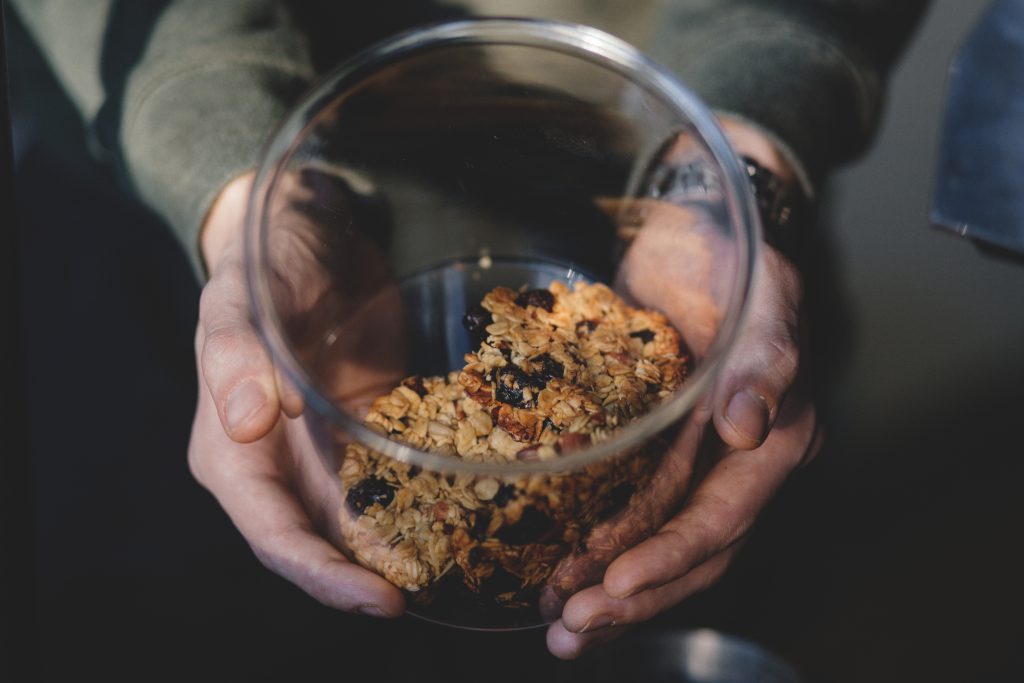
The Best Flour Alternatives For Gluten-Free Chocolate Peanut Butter Cookies
Almond Flour
Pros
Almond flour is a great different to wheat flour. It is made from finely floor almonds and has a barely sweet, nutty taste. This flour is gluten-free, making it a smart choice for individuals with celiac illness or gluten intolerance. Almond flour is also an excellent source of protein and fiber, which can help keep you feeling full and happy after eating.
Cons
Cons of Almond Flour:
– Expensive: Almond flour is considerably costlier than wheat flour or other gluten-free flours.
– High in Fat: Almond flour has the next fats content material than most other flours, which can make baked goods denser and fewer airy.
– Not as Versatile: Almond flour has a unique texture and flavor than wheat flour, so it is probably not suitable for every type of baked items. It is not a good selection for recipes that require a lot of kneading or gluten development.
– Can Be Gritty: Almond flour has a coarser texture than wheat flour, which could find yourself in a gritty texture in baked goods. It is essential to grind the almonds finely to scale back the grittiness.
– May Cause Digestive Issues: Almond flour is excessive in fiber, which may cause digestive issues in some people, corresponding to gas, bloating, and diarrhea.
– Allergy Potential: Almonds are a standard allergen, so individuals with nut allergic reactions should avoid almond flour.
Coconut Flour
Pros
Coconut Flour: Pros
- High in fiber
- Low in carbs
- Rich in healthy fats
- Good supply of protein
- Gluten-free
- Paleo-friendly
- Keto-friendly
- Absorbs liquids properly, making it a sensible choice for baking
- Has a light, slightly sweet flavor
- Can be used in quite a lot of recipes, including cookies, cakes, bread, and pancakes
Cons
• Dense texture: Coconut flour absorbs lots of liquid, which may find yourself in a dense, dry texture. It is important to make use of enough liquid in your recipes to stop the chocolate peanut butter cookies no bake from turning into too dry.
• High in fats: Coconut flour is excessive in fats, which may make the cookies greasy or oily. It is essential to use a light-weight hand when including coconut flour to your recipes.
• Difficult to measure: Coconut flour may be very absorbent, which might make it troublesome to measure accurately. It is essential to make use of a kitchen scale to measure coconut flour to ensure that you are using the right amount.
• Can be expensive: Coconut flour is costlier than different gluten-free flours. It is necessary to factor this into the value of your recipes.
Quinoa Flour
Pros
Quinoa flour is an effective source of protein and fiber.
It is a good supply of iron.
It is an efficient source of magnesium.
It is a good supply of phosphorus.
It is a good supply of potassium.
It is a good supply of zinc.
It is a good supply of nutritional vitamins B1, B2, B3, and B6.
It is an efficient source of vitamin E.
It is an effective source of folate.
It is a good source of antioxidants.
It is an efficient supply of phytonutrients.
It is an effective supply of prebiotics.
It is an efficient source of probiotics.
It is gluten-free.
It is an efficient choice for people with celiac disease or gluten sensitivity.
It is an efficient choice for people who are vegan or vegetarian.
It is an efficient alternative for people who find themselves attempting to lose weight.
It is an efficient choice for people who are attempting to improve their overall well being.
Cons
Cons of Quinoa Flour:

• Can be dearer than other gluten-free flours
• Has a barely bitter taste that will not be most popular by some
• Can be tough to seek out in some grocery stores
• May not be as versatile as different gluten-free flours, corresponding to almond flour or coconut flour
Oat Flour
Pros
Oat Flour
Oat flour is a nutritious and versatile gluten-free flour made from floor oats. It is a good supply of fiber, protein, and essential vitamins and minerals. Oat flour has a slightly nutty flavor and a chewy texture, making it an excellent selection for baking cookies, muffins, and different baked goods.
Pros of Oat Flour:
– Gluten-free
– High in fiber
– Good source of protein
– Rich in vitamins and minerals
– Nutty flavor
– Chewy texture
Cons
–
Lack of nutrient density: Oat flour is less nutrient-dense than wheat flour, providing fewer vitamins, minerals, and fiber.
–
High glycemic index: Oat flour has a higher glycemic index than wheat flour, which means it could possibly trigger a rapid spike in blood sugar ranges.
–
Can be gritty: Oat flour is made from whole oats, which can give baked items a gritty texture.
–
Limited availability: Oat flour will not be as available as wheat flour in some areas.
Brown Rice Flour
Pros
Brown rice flour is a gluten-free flour made from finely floor brown rice. It has a barely nutty flavor and a slightly gritty texture. Brown rice flour is a good supply of fiber, protein, and minerals. It is also a great source of antioxidants.
When baking with brown rice flour, it is important to use slightly extra liquid than you would with other flours. This is as a end result of brown rice flour is extra absorbent than different flours. Brown rice flour can be used to make a wide selection of baked items, together with cookies, muffins, and bread.
Here are a variety of the pros of utilizing brown rice flour:
- It is gluten-free.
- It is a good source of fiber, protein, and minerals.
- It is an efficient supply of antioxidants.
- It can be used to make quite so much of baked goods.
Cons
– High glycemic index: Brown rice flour has a excessive glycemic index (GI), which implies it might possibly cause a fast spike in blood sugar levels. This could be problematic for folks with diabetes or those that must handle their blood sugar.
– May include arsenic: Brown rice flour may contain higher ranges of arsenic than other forms of flour. Arsenic is a poisonous metal that can have opposed well being results, particularly for kids and pregnant or breastfeeding ladies.
– Can be gritty: Brown rice flour can have a gritty texture, which some folks might discover unappealing.
– Not as versatile: Brown rice flour just isn’t as versatile as another kinds of flour and will not be suitable for all recipes.